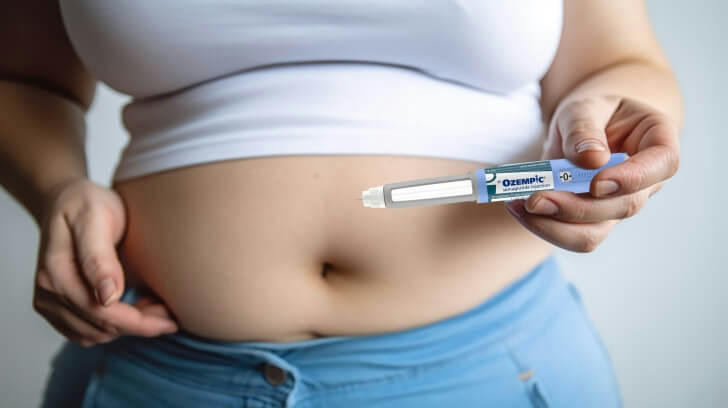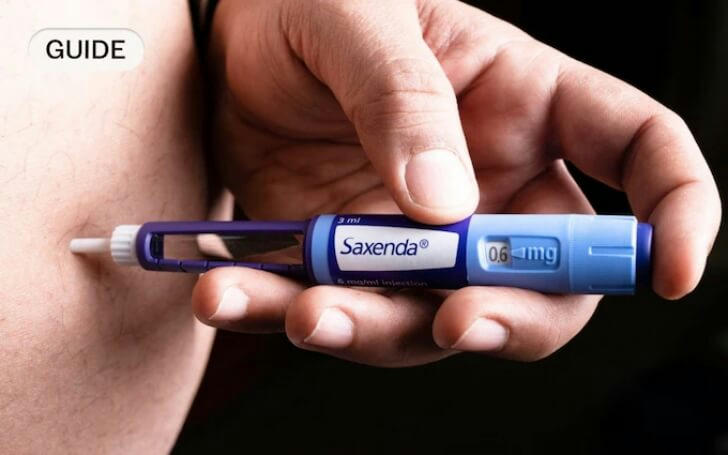How to Achieve Your Ideal Body through Injection Weight Loss
Weight loss has always been a popular topic of concern in modern society. With the fast pace of life and changing dietary habits, many people find themselves struggling with obesity and weight management. While traditional weight loss methods like dieting and exercising have been widely used, many people find it difficult to stick to them or are not satisfied with the results. To help those who need to lose weight quickly, the medical field has developed injection-based weight loss treatments, which have become increasingly popular due to their effectiveness. This article will explain the basic principles of injection weight loss, common types of injection treatments, how to choose the right treatment, and real-life cases to help you better understand this emerging weight loss method.

1. Basic Principles of Injection Weight Loss
Injection weight loss treatments involve administering specific medications or active ingredients into the body to help break down fat, accelerate fat metabolism, and ultimately achieve weight loss. These medications work in different ways, such as suppressing appetite, reducing fat storage, or increasing metabolism, to help reduce the accumulation and burning of fat.
Common weight loss injections include HCG (Human Chorionic Gonadotropin) injections, Botox (Botulinum toxin) injections, and lipolysis injections. Each method has its own mechanism and effectiveness, and it's important to choose based on individual body type and weight loss goals.
2. Common Types of Injection Weight Loss Treatments
HCG Injections for Weight Loss
HCG, or Human Chorionic Gonadotropin, is a naturally occurring hormone commonly used to treat infertility. In recent years, HCG injections have become popular for weight loss, especially among those needing rapid weight reduction. The main principle behind HCG injection for weight loss is its ability to control appetite and promote fat breakdown.
HCG weight loss injections are typically used in conjunction with a very low-calorie diet (VLCD). When combined with a strict low-calorie eating plan, HCG injections can help speed up fat burning. Although this method can be effective, there is controversy surrounding it. Critics argue that the low-calorie diet may lead to nutritional deficiencies, and the results may vary from person to person. It's important to consult a doctor and proceed with caution when considering this option.
Botox Injections for Weight Loss
Botox is best known for its ability to reduce facial wrinkles by injecting it into the skin, but research has shown that Botox can also affect the muscles in the gastrointestinal system, slowing down the rate at which the stomach empties, and thus reducing appetite. This makes Botox injections an option for weight loss, as it helps to curb the feeling of hunger.
Botox weight loss injections have the advantage of being relatively simple and requiring little downtime. They are ideal for individuals who struggle with overeating or have a tendency to overconsume food. However, the effects of Botox injections are temporary, so maintenance treatments are required to sustain the results.
Lipolysis Injections
Lipolysis injections, such as "Mesotherapy" or other fat-dissolving injections, target specific areas of stubborn fat. These injections break down fat cells directly, speeding up fat metabolism and helping to contour the body. Lipolysis injections are commonly used in areas like the abdomen, thighs, and buttocks, where fat is more difficult to reduce with diet and exercise alone.
Lipolysis injections offer a non-invasive alternative to traditional weight loss treatments and usually require no surgical intervention. While the procedure itself is relatively quick and the recovery time is short, there may be minor side effects like redness, swelling, or bruising at the injection site, which typically resolves within a few days.
3. How to Choose the Right Injection Weight Loss Treatment?
While injection weight loss treatments can be highly effective, they are not suitable for everyone. When selecting the best treatment for you, consider the following factors:
Personal Health Condition: Injection weight loss treatments are typically recommended for people who are healthy, overweight but not obese. Some methods, like HCG injections, may not be suitable for certain individuals, such as pregnant women, breastfeeding women, or those with severe health conditions. Always consult a healthcare provider to determine if you are a good candidate for these treatments.
Weight Loss Goals and Budget: Different weight loss injections have varying levels of effectiveness and costs. HCG injections may be ideal for more significant weight loss, while lipolysis injections are great for targeting specific problem areas. Depending on your budget, you may also want to consider which treatment offers the best value for your goals.
Doctor's Recommendations: Before deciding on an injection weight loss treatment, it's crucial to consult with a doctor or specialist. A professional consultation can help determine which treatment method is the most appropriate for your health status and weight loss goals.

4. Advantages and Considerations for Injection Weight Loss
Advantages
Quick Results: Injection weight loss treatments often produce visible results in a relatively short amount of time. This makes them ideal for people looking to lose weight quickly or who have specific short-term weight loss goals. Compared to traditional methods like dieting and exercise, weight loss injections can offer a more immediate impact.
Non-invasive: Most injection treatments are non-invasive and do not require surgery. The recovery time is usually minimal, allowing patients to return to their daily activities quickly.
Targeted Fat Reduction: For example, lipolysis injections are designed to target specific problem areas such as the abdomen, thighs, or buttocks, offering a more precise approach to body contouring.
Considerations
Side Effects and Risks: While injection weight loss treatments are generally safe, they may cause side effects like swelling, bruising, or redness at the injection site. Additionally, certain methods, such as HCG injections, may lead to hormonal imbalances. It is essential to fully understand the potential risks and benefits before proceeding with treatment.
Maintenance of Results: The results of injection weight loss treatments are typically temporary. Without maintaining a healthy diet and exercise regimen, weight may be regained. Sustainable weight loss requires ongoing lifestyle changes, including a balanced diet and regular physical activity.
Individual Differences: The effectiveness of injection weight loss treatments can vary between individuals. While some people may see great results, others may experience more modest effects. It's important to have realistic expectations and consult with a healthcare provider before starting treatment.
5. Real-Life Cases: Three Patient Experiences with Injection Weight Loss
Case 1: Sarah’s Journey with HCG Injections (USA)
Sarah, a 30-year-old woman from California, struggled with weight gain due to stress and an irregular diet. Despite trying various traditional weight loss methods, such as dieting and exercising, she couldn't achieve the results she desired. After hearing about HCG injections for weight loss, she decided to give it a try.
Under the guidance of a medical professional, Sarah began the HCG injection treatment, following a strict low-calorie diet. Within two months, she successfully lost 15 kilograms. Sarah reported that the injections helped her manage her hunger, and the fat-burning process was accelerated. While she was pleased with the rapid results, she maintained a healthy eating plan to prevent regaining the weight after the treatment.
Case 2: John’s Lipolysis Injection Treatment (UK)
John, a 45-year-old man from London, had struggled with stubborn abdominal fat for years. Although he followed a healthy diet, his belly fat remained resistant to exercise and lifestyle changes. After consulting with a specialist, John opted for lipolysis injections to target his abdominal fat.
After four lipolysis injection sessions, John noticed a significant reduction in his abdominal fat, and his overall body shape became more toned. While he experienced some mild bruising and swelling after each session, the side effects dissipated quickly. John was extremely satisfied with the results and continued to maintain a regular workout routine to keep his weight in check.
Case 3: Emma’s Botox Weight Loss Experience (Australia)
Emma, a 40-year-old woman from Sydney, had struggled with overeating and excess weight, particularly around her thighs and abdomen. She decided to try Botox injections to help control her appetite and support her weight loss efforts.
After three Botox sessions, Emma noticed a substantial decrease in her hunger levels and her overall food intake. Over the next six months, Emma successfully lost 10 kilograms and maintained her weight. She was thrilled with the results, particularly since Botox treatment had minimal side effects and was easy to maintain.

6. Conclusion
Injection weight loss treatments have become a popular and effective option for many individuals looking to lose weight quickly and efficiently. Compared to traditional methods like dieting and exercising, injection-based treatments can offer more immediate results and a less invasive approach to weight loss. However, these treatments are not suitable for everyone, and it's essential to consult with a healthcare provider before starting any injection weight loss program.
No matter which injection weight loss method you choose, it's important to maintain a healthy lifestyle, including proper nutrition and regular exercise, to ensure that the results last long-term. If you're considering injection weight loss, take the time to research the different options, consult with professionals, and select the treatment that aligns best with your goals and needs.
